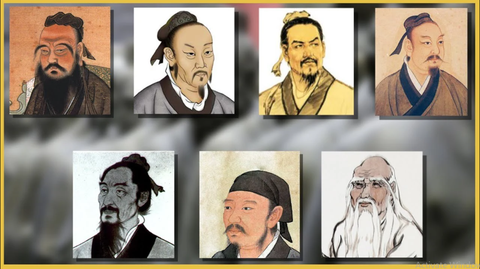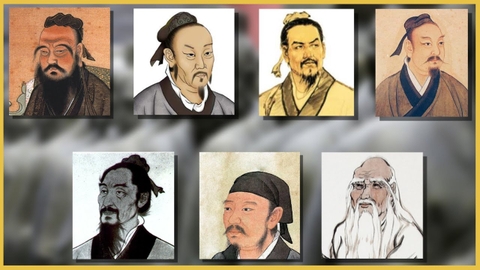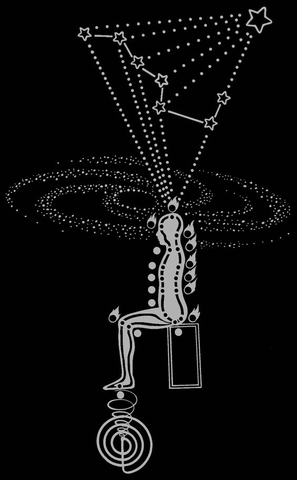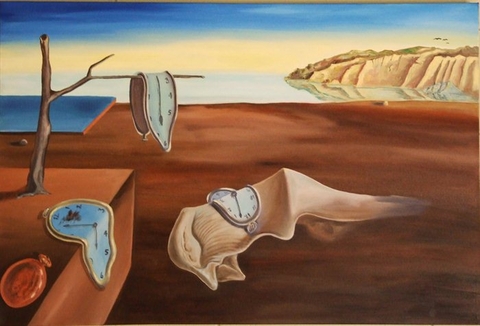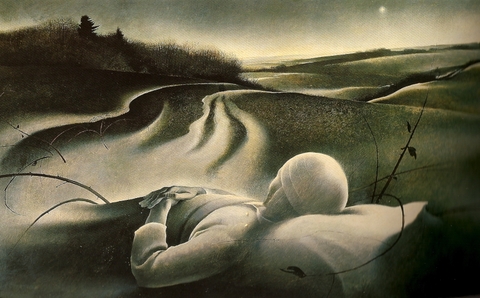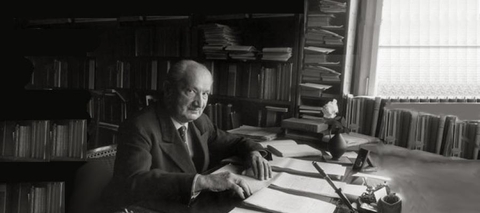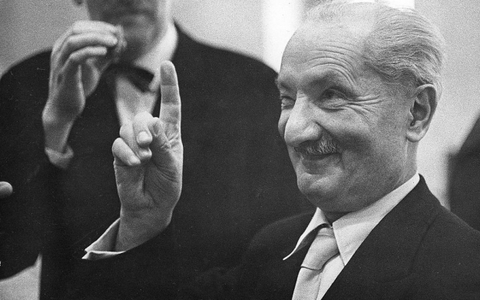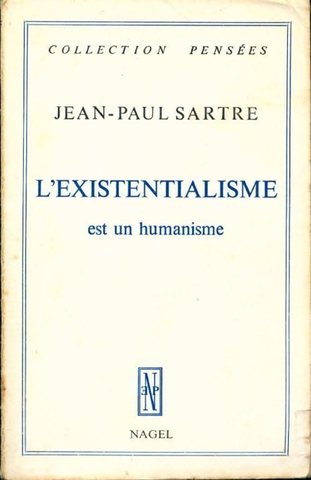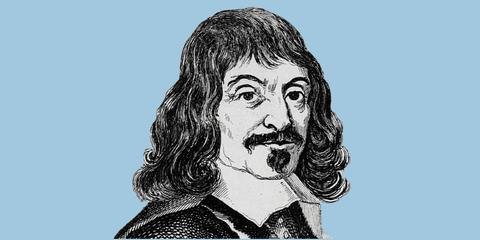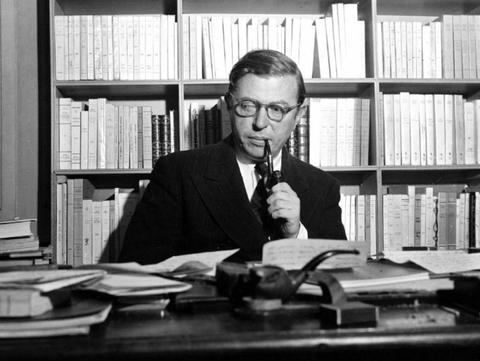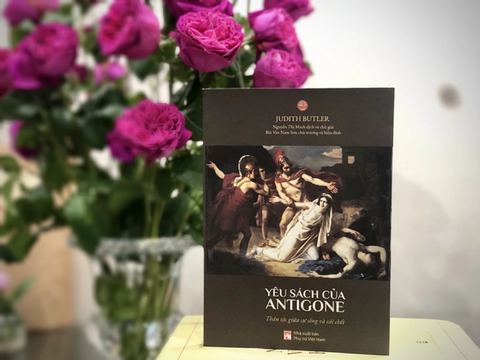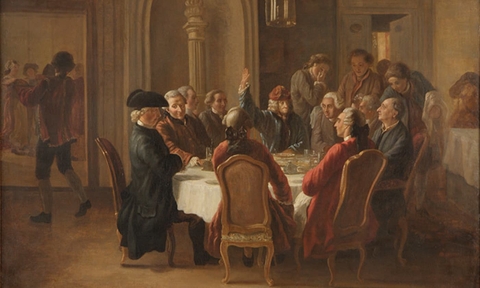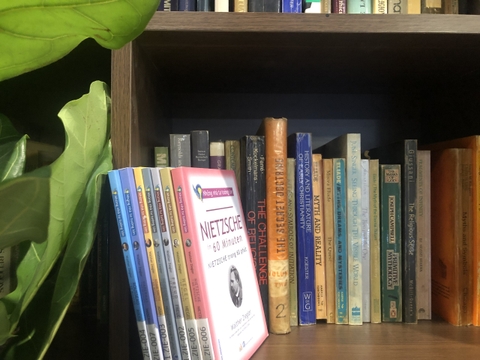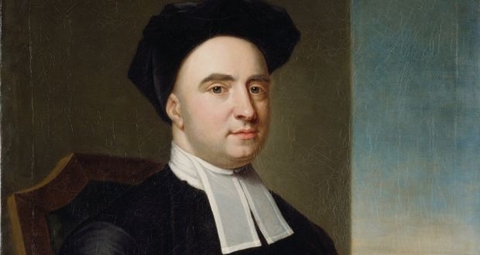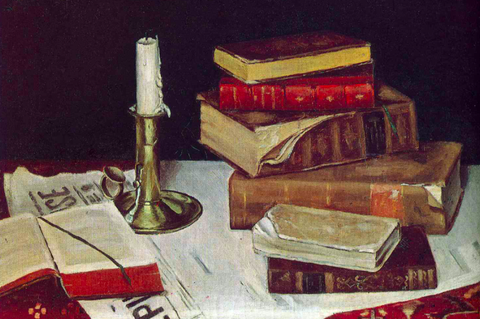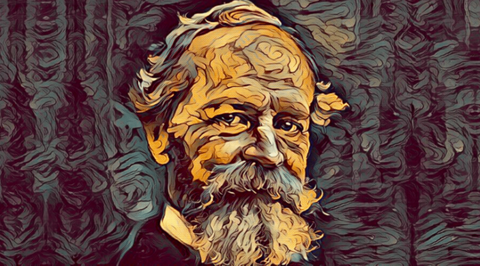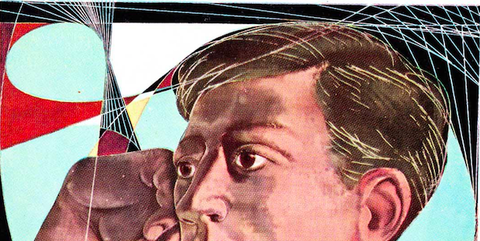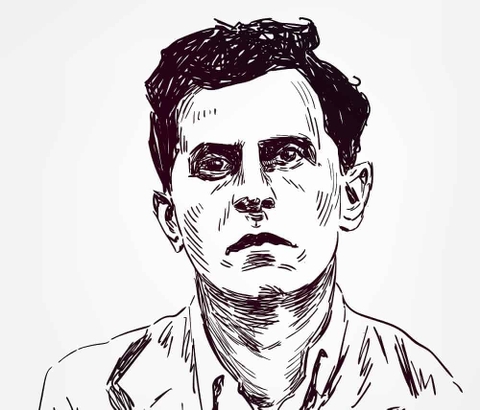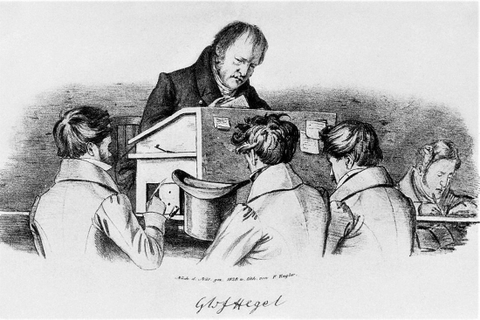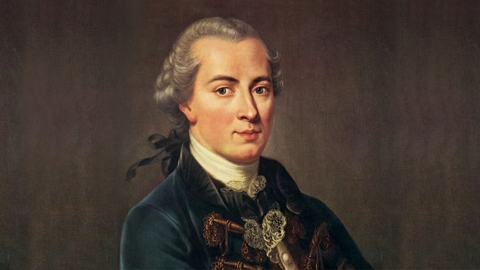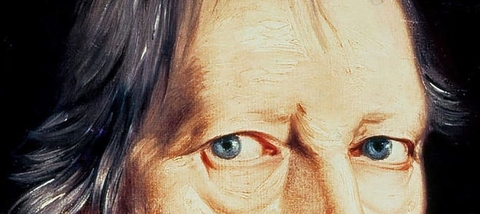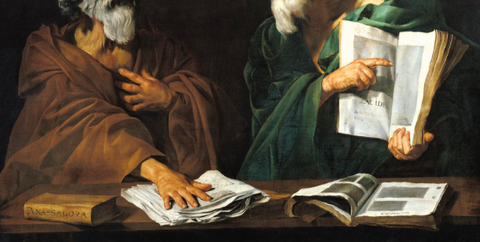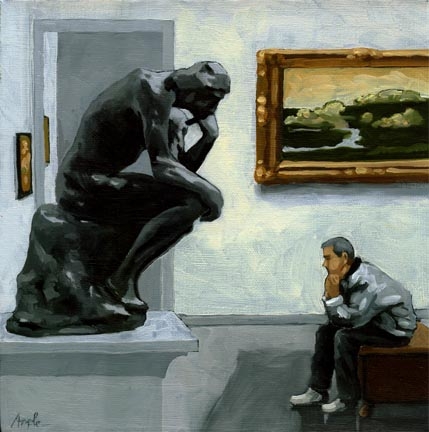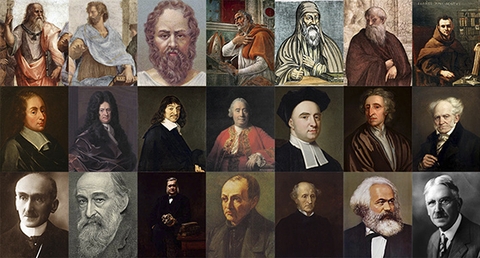Read ON THE ESSENCE OF TRUTH - MARTIN HEIDEGGER - translated by JOHN SALLIS - PART I
Read ON THE ESSENCE OF TRUTH - MARTIN HEIDEGGER - translated by JOHN SALLIS - PART II

7. Untruth as Errancy
As insistent, man is turned toward the most readily available beings. But he insists only by being already ek-sistent, since, after all, he takes beings as his standard. However, in taking its standard, humanity is turned away from the mystery. The insistent turning toward what is readily available and the ek-sistent turning away from the mystery belong together. They are one and the same. Yet turning toward and away from is based on a turning to and fro proper to Dasein. Man‟s flight from the mystery toward what is readily available, onward from one current thing to the next, passing the mystery by — this is erring.*
Man errs. Man does not merely stray into errancy. He is always astray in errancy, because as eksistent he in-sists and so already is caught in errancy. The errancy through which man strays is not something which, as it were, extends alongside man like a ditch into which he occasionally stumbles; rather errancy belongs to the inner constitution of the Da-sein into which historical man is admitted. Errancy is the free space for that turning in which insistent ek-sistence adroitly forgets and mistakes itself constantly anew. The concealing of the concealed being as a whole holds sway in that disclosure of specific beings, which, as forgottenness of concealment, becomes errancy.
Errancy is the essential counter-essence to the primordial essence of truth. Errancy opens itself up as the open region for every opposite to essential truth. Errancy is the open site for and ground of error. Error is not just an isolated mistake but rather the realm (the domain) of the history of those entanglements in which all kinds of erring get interwoven.
In conformity with its openness and its relatedness to beings as a whole, every mode of comportment has its mode of erring. Error extends from the most ordinary wasting of time, making a mistake, and miscalculating, to going astray and venturing too far in one‟s essential attitudes and decisions. However, what is ordinarily and even according to the teachings of philosophy recognized as error, incorrectness of judgments and falsity of knowledge, is only one mode of erring and, moreover, the most superficial one. The errancy in which any given segment of historical humanity must proceed for its course to be errant is essentially connected with the openness of Dasein. By leading him astray, errancy dominates man through and through. But, as leading astray, errancy at the same time contributes to a possibility that man is capable of drawing up from his ek-sistence — the possibility that, by experiencing errancy itself and by not mistaking the mystery of Da-sein, he not let himself be led astray.
Because man‟s in-sistent ek-sistence proceeds in errancy, and because errancy as leading astray always oppresses in some manner or other and is formidable on the basis of this oppression of the mystery, specifically as something forgotten, in the ek-sistence of his Dasein man is especially subjected to the rule of the mystery and the oppression of errancy. He is in the needful condition of being constrained by the one and the other. The full essence of truth, including its most proper non-essence, keeps Dasein in need by this perpetual turning to and fro. Dasein is a turning into need. From man‟s Dasein and from it alone arises the disclosure of necessity and, as a result, the possibility of being transposed into what is inevitable.
The disclosure of beings as such is simultaneously and intrinsically the concealing of being as a whole. In the simultaneity of disclosure and concealing errancy holds sway. Errancy and the concealing of what is concealed belong to the primordial essence of truth. Freedom, conceived on the basis of the in-sistent eksistence of Dasein, is the essence of truth (in the sense of the correctness of presenting) only because freedom itself originates from the primordial essence of truth, the rule of the mystery in errancy. Letting beings be takes its course in open comportment. However, letting beings as such be as a whole occurs in a way befitting its essence only when from time to time it gets taken up in its primordial essence. Then resolute openness toward the mystery [Ent-schlossenheit zum Geheimnis] is under way into errancy as such. Then the question of the essence of truth gets asked more originally. Then the ground of the intertwining of the essence of truth with the truth of essence reveals itself. The glimpse into the mystery out of errancy is a question — in the sense of that unique question of what being as such is as a whole. This questioning thinks the question of the Being of beings, a question that is essentially misleading and thus in its manifold meaning is still not mastered. The thinking of Being, from which such questioning primordially originates has since Plato been understood as “philosophy” and later received the title “metaphysics.”
8. Philosophy and the Question of Truth
In the thinking of Being the liberation of man for ek-sistence, the liberation that grounds history, is put into words. These are not just the “expression” of an opinion but are always already the ably conserved articulation of the truth of being as a whole. How many have ears for these words matters not. Who those are that can hear them determines man‟s standpoint in history. However, in the same period in which the beginning of philosophy takes place, the marked domination of common sense (sophistry) also begins.
Sophistry appeals to the unquestionable character of the beings that are opened up and interprets all thoughtful questioning as an attack on, an unfortunate irritation of, common sense. However, what philosophy is according to the estimation of common sense, which is quite justified in its own domain, does not touch on the essence of philosophy, which can be determined only on the basis of relatedness to the original truth of being as such as a whole. But because the full essence of truth contains the non-essence and above all holds sway as concealing, philosophy as a questioning into this truth is intrinsically discordant. Philosophical thinking is gentle releasement that does not renounce the concealment of being as a whole. Philosophical thinking is especially the stern and resolute openness that does not disrupt the concealing but entreats its unbroken essence into the open region of understanding and thus into its own truth.
In the gentle sternness and stem gentleness with which it lets being as such be as a whole, philosophy becomes a questioning which does not cling solely to beings yet which also can allow no externally imposed decree. Kant presaged this innermost need that thinking has. For he says of philosophy:
Here philosophy is seen in fact to be placed in a precarious position which is supposed to be stable—although neither in heaven nor on earth is there anything on which it depends or on which it is based. It is here that it has to prove its integrity as the keeper of its laws [Selbsthalterin ihrer Gesetze], not as the mouthpiece of laws secretly communicated to it by some implanted sense or by who knows what tutelary nature. (Grundlegung zur Metaphysik der Sitten. Werke, Akademieausgabe IV, 425.)
With this essential interpretation of philosophy, Kant, whose work introduces the final turning of Western metaphysics, envisions a domain which to be sure he could understand only on the basis of his fundamental metaphysical positions founded on subjectivity, and which he had to understand as the keeping of its laws. This essential view of the determination of philosophy nevertheless goes far enough to renounce every subjugation of philosophical thinking, the most destitute kind of which lets philosophy still be of value as an “expression” of “culture” (Spengler) and as an ornament of productive mankind. However, whether philosophy as “keeper of its laws” fulfills its primordially decisive essence, or whether it is not itself first of all kept and appointed to its task as keeper by the truth of that to which its laws pertain, this depends on the primordiality with which the original essence of truth becomes essential for thoughtful questioning.
The present undertaking takes the question of the essence of truth beyond the confines of the ordinary definition provided in the usual concept of essence and helps us to consider whether the question of the essence of truth must not be, at the same time and even first of all, the question concerning the truth of essence. But in the concept of “essence” philosophy thinks Being. In tracing the inner possibility of the correctness of statements back to the eksistent freedom of letting-be as its “ground,” likewise in pointing to the essential commencement of this ground in concealing and in errancy, we want to show that the essence of truth is not the empty “generality” of an “abstract” universality but rather that which, self-concealing, is unique in the unremitting history of the disclosure of the “meaning” of what we call Being — what we for a long time have been accustomed to considering only as being as a whole.
9. Note
The question of the essence of truth arises from the question of the truth of essence. In the former question essence is understood initially in the sense of whatness (quidditas) or material content (realitas), whereas truth is understood as a characteristic of knowledge. In the question of the truth of essence, essence is understood verbally; in this word, remaining still within metaphysical presentation, Being is thought as the difference that holds sway between Being and beings. Truth signifies sheltering that lightens [lichtendes Bergen] as the basic characteristic of Being. The question of the essence of truth finds its answer in the proposition the essence of truth is the truth of essence. After our explanation it can easily be seen that the proposition does not merely reverse the word order so as to conjure the specter of paradox. The subject of the proposition — if this unfortunate grammatical category may still be used at all — is the truth of essence. Sheltering that lightens is — i. e., lets essentially unfold — accordance between knowledge and beings. The proposition is not dialectical. It is no proposition at all in the sense of a statement. The answer to the question of the essence of truth is the saying of a turning [die Sage einer Kehre] within the history of Being. Because sheltering that lightens belongs to it, Being appears primordially in the light of concealing withdrawal. The name of this lighting [Lichtung] is aletheia.
Already in the original project the lecture “On the Essence of Truth” was to have been completed by a second lecture “On the Truth of Essence.” The latter failed for reasons that are now indicated in the “Letter on Humanism.” The decisive question (in Being and Time, 1927) of the meaning, i. e., of the project-domain (cf. p. 151), i. e., of the openness, i. e., of the truth of Being and not merely of beings, remains intentionally undeveloped. Our thinking apparently remains on the path of metaphysics.
Nevertheless, in its decisive steps, which lead from truth as correctness to ek-sistent freedom, and from the latter to truth as concealing and as errancy, it accomplishes a change in the questioning that belongs to the overcoming of metaphysics. The thinking attempted in the lecture comes to fulfillment in the essential experience that a nearness to the truth of Being is first prepared for historical man on the basis of the Dasein into which man can enter. Every kind of anthropology and all subjectivity of man as subject is not merely left behind — as it was already in Being and Time — and the truth of Being sought as the ground of a transformed historical position; rather, the movement of the lecture is such that it sets out to think from this other ground (Dasein). The course of the questioning is intrinsically the way of a thinking which, instead of furnishing representations and concepts, experiences and tries itself as a transformation of its relatedness to Being.





